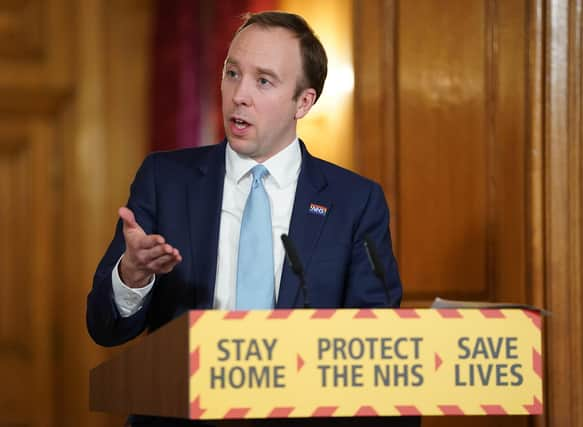‘Immunity passports’ being considered to ease lockdown


Health Secretary Matt Hancock confirmed the proposal was being examined, but said more work was needed on how the certificates would operate, and the science behind immunity.
But there was a warning from health officials that any test to confirm someone has had coronavirus would only work effectively four weeks after they contracted the illness – meaning that lockdown measures are likely to remain in place for everyone for at least a month more.
Advertisement
Hide AdAdvertisement
Hide AdGermany has reportedly also examined a passport scheme for those who have developed immunity to the virus.
Mr Hancock said the government was ready to secure supplies of up to 17.5 million blood tests for coronavirus antibodies, but that verification checks had shown that some tests supplied by pharmaceutical companies were not reliable enough to be released to the public.
The Health Secretary said that once a reliable test had been identified, it could allow those who have had coronavirus to “get back as much as possible to normal life.”
But he added that “the science isn’t yet advanced enough” to roll out blood tests yet.
“The early results of some of them has not performed well but we’re hopeful that they will improve and that the later tests that we’ve got our hands on will be reliable enough for people to use them with confidence.”
Mr Hancock said: “We have a programme of work to understand the immunity that you get out of this, which is a global piece of work,” Mr Hancock said.
And what you then do for people who have had the disease… believe you me, I have a very strong, personal interest in this one now that I’ve been through it.”
Professor John Newton, the director of health at Public Health England explained that antibody tests “are ideally done 28 days after an infection, so in fact the requirement for the antibody test isn’t really with us yet.
Advertisement
Hide AdAdvertisement
Hide Ad“The test measures your immunity and the peak of your immunity is at 28 days. So if you want to tell somebody that they haven’t been infected, and they’re not immune, you really have to do it then to be sure.”